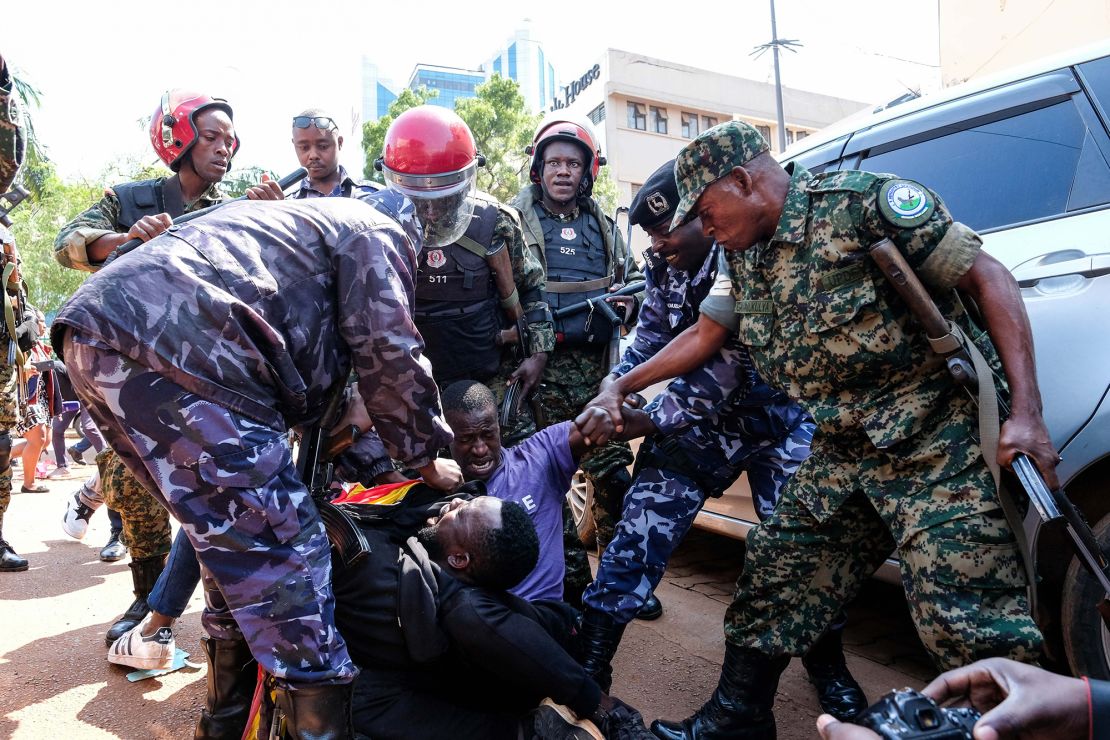
In several major African cities, young people are experiencing a wave of anger and frustration due to corruption, the rising cost of living, and widespread unemployment.
The unrest began in Kenya last month, with a significant number of Gen Z youths participating in six weeks of demonstrations against a proposed bill that aimed to raise taxes. Unfortunately, these protests resulted in the loss of at least 50 lives.
In response, President William Ruto withdrew the bill and reshuffled his cabinet, addressing concerns from protesters about alleged corruption and police brutality. Some demonstrators have called for his resignation.

Kenya, as East Africa’s largest economy, has been struggling with rising living costs, spiking food prices and other commodities, and a growing youth unemployment rate. The country is heavily indebted, both domestically and internationally, with a significant portion of its revenue allocated to debt repayment.
The unrest quickly spread to Uganda, where citizens attempted to march to the parliament in Kampala on July 23 and 25. The response from security forces was severe, with over 100 people detained. Protesters in Uganda are also voicing their anger over widespread government corruption, which reportedly costs the country an estimated $2.7 billion in public funding annually, according to the Inspectorate of Government.
Radio host Faiza Fabz, who participated in the protests, described them as an opportunity to change the nation's direction and compel leaders to listen to the people's demands. These demands include auditing the lifestyles of MPs and publicizing the results, along with the resignation of lawmakers involved in corruption scandals. Fabz was among those detained by the Ugandan police.
Despite some economic stability from an oil-related construction boom and growth in agriculture, Uganda struggles with endemic corruption, scoring low on Transparency International’s Corruption Perceptions Index. Several high-profile Ugandan politicians, including the speaker of the parliament, Anita Annet Among, have faced sanctions from the United States and the United Kingdom for corruption.
President Yoweri Museveni, who has led Uganda for nearly four decades, warned protesters they were "playing with fire" and praised security forces for preventing the demonstrations, claiming without evidence that they were funded by foreign sources.
In Nigeria, the most populous country in Africa, young people are planning an "end bad governance" march on August 1. They are protesting against economic issues such as inflation, which has soared to over 34%, its highest in nearly 30 years, causing a severe cost-of-living crisis. The country's unemployment rate has also been rising.
The demands from young Nigerians include addressing insecurity, reducing the cost of living, and reforming governance, elections, the judiciary, and the constitution. Human rights lawyer Inibehe Effiong emphasized the urgency of these issues, stating that people are tired and hungry and questioning why the president needs to wait until August 1 to start making changes.
Recalling the 2020 #EndSARS protests, where security forces opened fire on unarmed protesters, Nigerian President Bola Tinubu has called for calm and warned that the planned protest could lead to violence and setbacks for the country. He suggested that the march was being organized by individuals with dual nationality.
Gift Mugano, an adjunct professor of economics at Durban University of Technology, described the youth uprisings as a "reality check for African leaders," warning that as long as economic opportunities and good governance are lacking, stability will not be achieved. He advised against cracking down on protesters and urged governments to address the underlying issues.
Senegalese political analyst Mamadou Thior echoed this view, noting that rising dissatisfaction among Africa's youth could lead to widespread unrest across the continent. Thior emphasized that young people are impatient for change and are connected through social media, which spreads the influence of movements like those in Kenya to other countries.
Recent months have also seen youth-led protests against corruption and bad governance in Senegal and Ghana. In Senegal, protests erupted after then-President Macky Sall announced a delay in the scheduled elections. After demonstrations led to at least three deaths, Sall reversed the delay following a ruling by the Senegalese constitutional council. This decision coincided with the release of political detainees, including current President Bassirou Diomaye Faye.
In Ghana, anti-government protests have been driven by economic hardships and unemployment.
Former Nigerian President Olusegun Obasanjo warned that the continent is on the brink of chaos, describing Africa as sitting on a "keg of gunpowder" with youth across the continent feeling angry, unemployed, and hopeless. He cautioned that if the needs of Africa’s youth are not addressed, the situation could become very dire for everyone.

:max_bytes(150000):strip_icc():format(webp)/alec-baldwin-torino-film-festival-121824-3cf7cfbe5c4f4bcbb9197de4de062ea6.jpg?strip=all&resize=370,370)
:max_bytes(150000):strip_icc():format(webp)/Jimmy-Fallon-and-Prince-Harry-092624-baa1362d743d4f39a7d60bf57eb6e8b2.jpg?strip=all&resize=370,370)
:max_bytes(150000):strip_icc():format(webp)/randy-moss-121324-40b858c71b0f40bfa399e2fe00152b2a.jpg?strip=all&resize=370,370)
:max_bytes(150000):strip_icc():format(webp)/scandal-kerry-washington-121824-c51a2b5f0ef741268474bec2498c285a.jpg?strip=all&resize=370,370)
